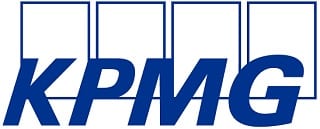The U.S. Securities and Exchange Commission today announced that KPMG has agreed to pay more than $6.2 million to settle charges that it failed to properly audit the financial statements of an oil and gas company, resulting in investors being misinformed about the energy company’s value.

According to the SEC’s order, KPMG was hired as the outside auditor for Miller Energy Resources in 2011 and issued an unqualified audit report despite grossly overstated values for key oil and gas assets. KPMG and the engagement partner John Riordan failed to properly assess the risks associated with accepting Miller Energy as a client and did not properly staff the audit, which overlooked the overvaluation of certain oil and gas interests that the company had purchased in Alaska the previous year. Among other audit failures, KPMG and Riordan did not adequately consider and address facts known to them that should have raised serious doubts about the company’s valuation, and they failed to detect that certain fixed assets were double-counted in the company’s valuation.
“Auditing firms must fully comprehend the industries of their clients. KPMG retained a new client and failed to grasp how it valued oil and gas properties, resulting in investors being misinformed that properties purchased for less than $5 million were worth a half-billion dollars,” said Walter E. Jospin, Director of the SEC’s Atlanta Regional Office.
The SEC’s order finds that KPMG and Riordan engaged in improper professional conduct and caused Miller Energy’s violation of Section 13(a) of the Securities Exchange Act and Rules 13a-1 and 13a-13. Without admitting or denying the findings, KPMG agreed to be censured and pay $4,675,680 in disgorgement of all the audit fees received from Miller Energy plus $558,319 in interest and a $1 million penalty. KPMG also agreed to significant undertakings designed to improve its system of quality control. Riordan agreed, without admitting or denying the findings, to pay a $25,000 penalty and be suspended from appearing or practicing before the SEC as an accountant, which includes not participating in the financial reporting or audits of public companies. The SEC’s order permits Riordan to apply for reinstatement after two years.
Miller Energy was charged with accounting fraud in 2015 and later settled the charges.
